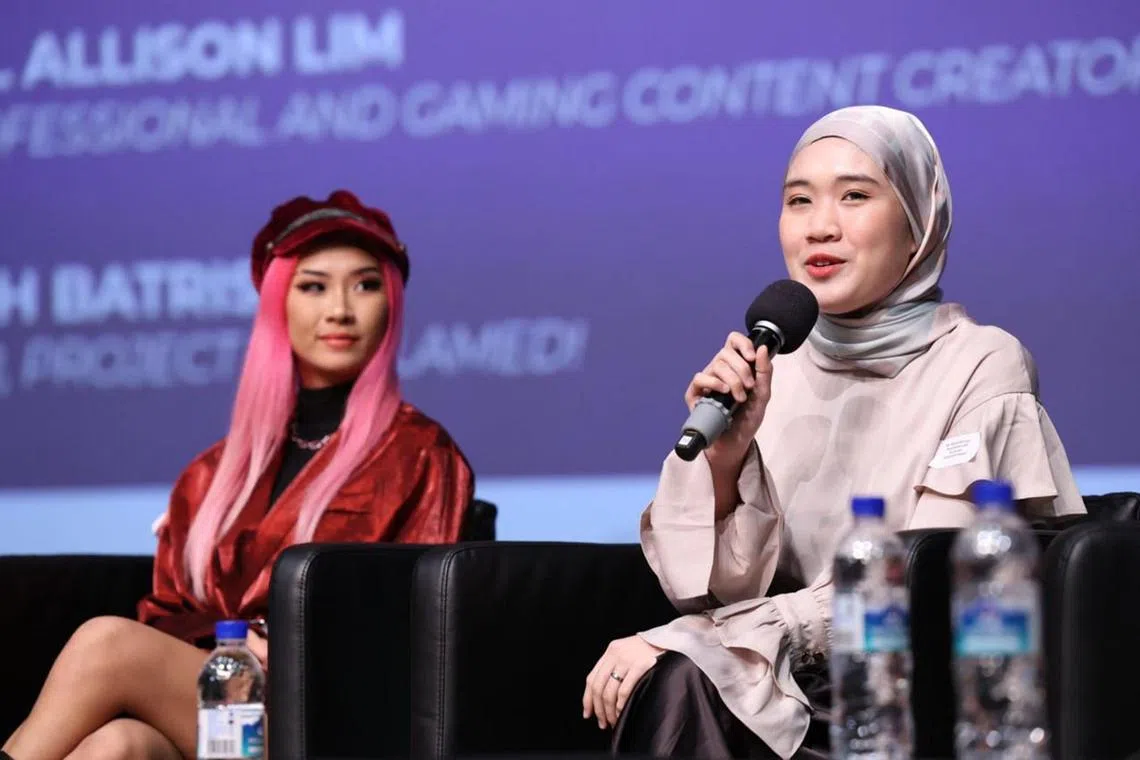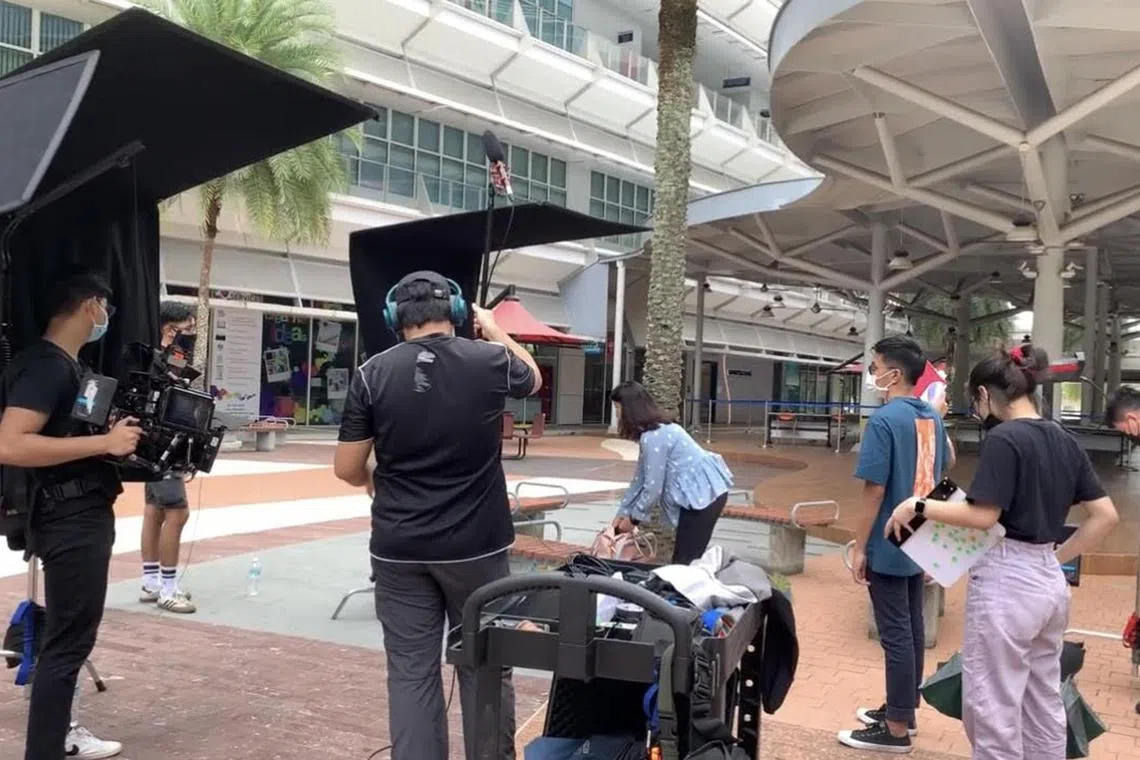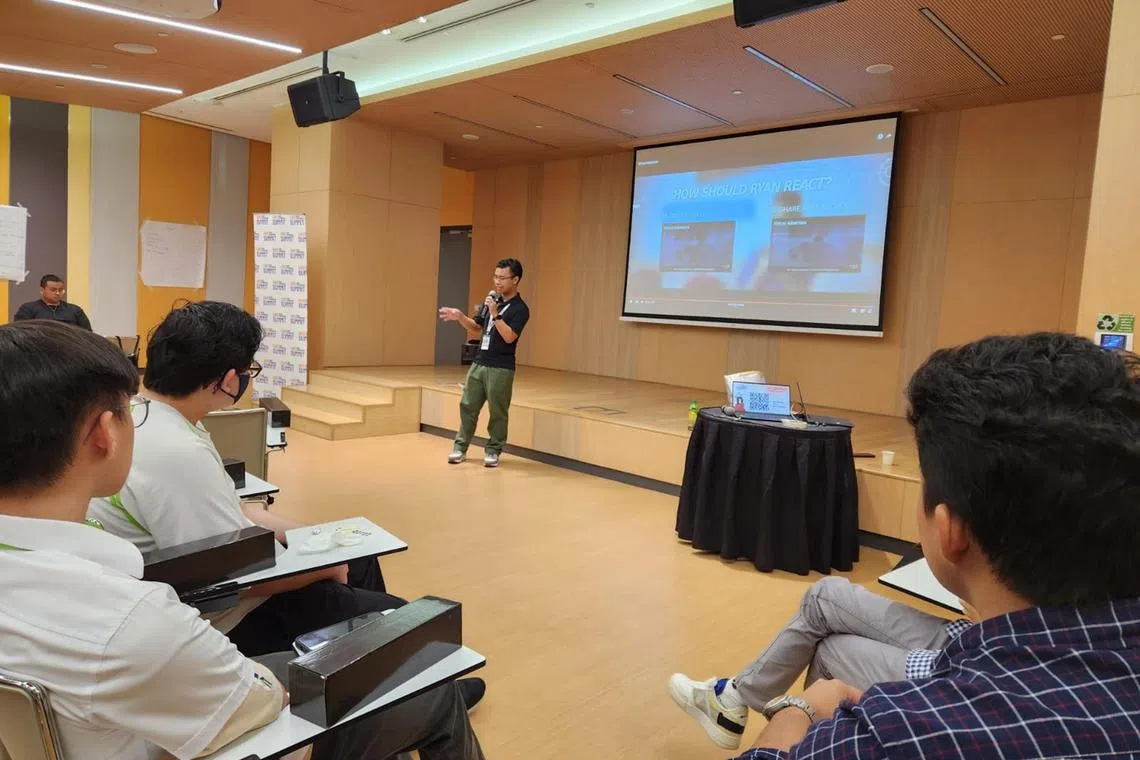Game changer: She’s inspiring youth to fight online toxicity and build positive gaming communities
The TL;DR: Ms Hannah Batrisyia faced hate online just for being a gamer girl. This motivated her to co-found Project Get Flamed! to foster positive gaming environments among youth.
Sign up now: Get ST's newsletters delivered to your inbox

Ms Hannah Batrisyia (right) said that her negative experiences in gaming inspired her to co-found Project Get Flamed.
PHOTO: PROJECT GET FLAMED
Follow topic:
SINGAPORE – Ms Hannah Batrisyia was in primary school when she received a PlayStation 1, which sparked off her love for gaming.
From early on, she consistently achieved top rankings and has even competed professionally in the multiplayer online battle arena game Mobile Legends: Bang Bang. But she has also encountered negativity, both online and off.
“I try to hide my gender online because I’ve received (online) attacks based on the fact that I’m a girl,” the fourth-year sociology student at Nanyang Technological University said.
“I’ve also felt pressure not to bring up (gaming) to people offline because of the stereotype that girls who game are looking for attention.”
She is not alone in her experiences – gamers often encounter toxic behaviour in-game, which can range from racist taunts to sexist insults.
More than a third of players aged 13 to 18 have come across vulgarities online or violent content in games, especially in first-person shooter games, the inaugural online gaming survey conducted by the Ministry of Culture and Information
Her experiences inspired 23-year-old Ms Batrisyia to start Project Get Flamed!, an initiative that aims to educate and empower young people, to build a more positive and inclusive online gaming community.
Her co-founder, Mr Muhammad Syazan Saad, 23, is not an avid gamer, but said he was inspired to start the initiative because of their friendship.
“Often when we hang out, Hannah will play a game or two while we’re on the bus, for example, and I’ll be on the receiving end of her rage when she gets frustrated by other players’ toxic behaviours online,” he said with a laugh.
“(It was these) experiences that inspired our discussions back when we started,” the Singapore Management University law student added. “We realised that this was a rather common experience that our friends faced as well.”
Project Get Flamed! – which has the tagline “Building safe spaces, empowering game changers” – began with a pilot run with Tanglin Secondary School in January 2021.
Since then, more than 1,800 young people have taken part in the two programmes it runs.
The first is a conversation series, which may be held in-person or pre-recorded for audiences, where members of the gaming community – including content creators, shoutcasters and e-sports coaches – speak about toxic behaviour they face online and how they deal with it.

The Project Get Flamed team working with volunteers to film and produce the virtual adventure video series.
PHOTO: PROJECT GET FLAMED
The second is a “choose your own adventure” style video series, where participants can determine how characters in the videos respond to negative experiences while gaming, such as insults from teammates.
Participants can then view the consequences of their actions on the different characters in subsequent videos. For example, if a character responds to spur-of-the-moment insults from a friend while gaming with retorts of his own, subsequent videos may show a strained personal relationship between the two parties.
The video series was filmed and produced in-house by the founders and a team of volunteers.
The programmes include discussions with participants on how to both reduce and deal with toxic in-game behaviour.
Project Get Flamed! is pitched to schools as part of their cyber-wellness curriculum. The programmes are free, and are run by the founders and youth volunteers aged 17 to 25.
Besides schools such as Yio Chu Kang and Pasir Ris secondary schools, the programmes have also been run at conferences and public events such as at the Digital for Life Festival 2022.
Mr Syazan said that it is important for young gamers to realise that in-game toxic behaviour often affects more than just those playing games.
He said: “Toxic in-game behaviour often leaves the virtual world and is brought into the real world.
“For example, some gamers often direct insults to people in their lives as a result of being unable to express it on in-game platforms. These outbursts often affect friends or families.”

Mr Muhammed Syazan engaging young people using the virtual adventure video series.
PHOTO: PROJECT GET FLAMED
Mr Syazan and Ms Batrisiya conceived Project Get Flamed! when they took part in What’s Your Take – Youth Edition (WYT-YE) by the Ministry of Education from May 2020 to January 2021.
They were among the 35 youngsters aged 16 to 25 given the opportunity to pitch and work on ground-up projects focused on improving mental health and cyber wellness among the young.
Project Get Flamed! is also hoping to expand online next year by setting up a Discord server that would serve as a safe space for youth gamers to connect online.
Mr Syazan said: “We’re hoping to build a digital space where like-minded people can game together.”
And for young gamers out there, Ms Batrisyia has a friendly reminder: Playful banter is part of the fun among friends while playing games, but it is important to never let in-game comments devolve into personal insults.
“For those out there who are facing toxicity online, we see you and we hear you,” she added.
“You are not alone, and don’t be afraid to reach out if you need help.”

